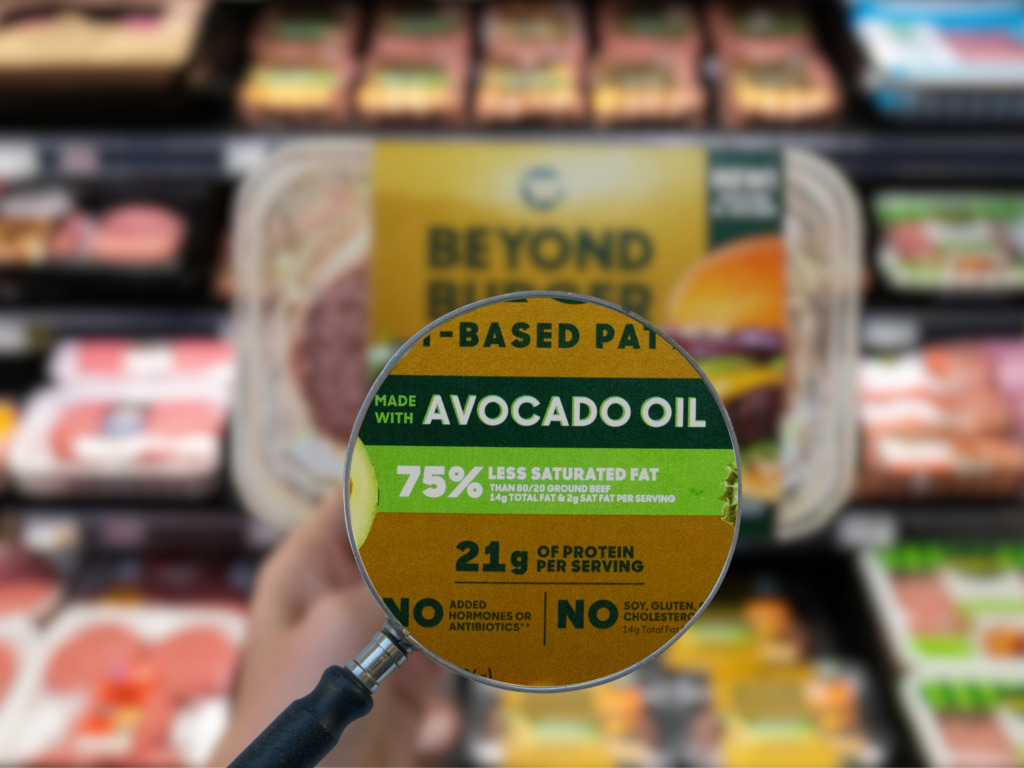Price Hikes Work as Beyond Meat Returns to Revenue Growth for the First Time Since 2022
7 Mins Read
Beyond Meat posted revenue growth for the first time in two years in Q3, buoyed by higher prices and a strong performance in Germany. It also teased its new mycelium steak.
After losing year-on-year revenue for nine quarters in a row, Beyond Meat returned to growth in the July-September period this year, boosting its profit margins and cutting losses from Q3 2023.
The Californian business, which has sought to pose itself as a “health company” this year with reformulated meat analogues and new whole-food sausages, recorded $81M in sales in Q3 2024, a 7.6% hike from last year.
This was largely thanks to the company jacking up the prices of its core products by 22% in the US and lowering trade discounts. These changes also helped the plant-based meat giant expand its quarterly margins to 17.7% – this is markedly higher than the 9.6% decline in margins in Q3 last year, and the 14.7% growth in the previous quarter.
And while the company’s volume sales were down by 7% in the third quarter, it saw improvements in year-on-year volume trends in three of its four sales channels, according to CEO Ethan Brown.
In a call with investors, he highlighted the need for Beyond Meat to celebrate and market its production process, announced an expansion of its partnership with Panda Express, and spilt some more details on its upcoming mycelium-based whole-muscle steak.
“The third quarter of 2024 serves as a pivotal quarter in our company’s history,” he said, noting how it seemed the protein markets would continue to be disrupted and pave the way for Beyond Meat to become mainstream after it went public in 2019.
“Turbulence, much of it generated by a concerted campaign supported by incumbent animal protein and pharmaceutical industries, destabilised the slipstream within which we travelled, and we fell from considerable heights,” he added.
“We responded by letting iron sharpen iron. We chose to get stronger, including moving our products along the continuum from relative to absolute health benefits, most notably in our Beyond IV platform and its broad endorsements from leading health institutions, and we got leaner and more focused.”
McDonald’s and Panda Express partnerships drive growth

Beyond Meat’s retail sales in the US rose by 14.6% in Q3 this year, primarily due to a 23% increase in net revenue per pound, as buyer rates for the new Beyond IV products saw an uptick. In foodservice too, net revenues grew by 15.5%, thanks in large part to the company’s reignited collaboration with Panda Express. The Beyond Orange Chicken dish is now available in 600 locations, doubling from its previous footprint.
Internationally, retail revenues were up by 17%, which the company attributed to greater distribution and demand in certain geographies. This was driven by Beyond Meat’s entry into Germany’s refrigerated channel, which it was unable to access due to shelf-life conditions until Q2.
“Having worked several years to meet shelf-life requirements, we are thrilled to now be in German retailers, Germany being one of the strongest plant-based markets in the world,” said Brown. “With a clear caution that it is very early days, we are seeing encouraging initial sell-through in this important market.”
The performance in these three channels reversed the decline in all sales channels in Q2 2024 (compared to the corresponding period a year ago). But the firm’s foodservice sales overseas took a hit, going from a 2.5% decline in Q2 to a 17% decrease in Q3. This was driven by a 22% drop in volume, reflecting “decreased sales of burger and chicken products to a large QSR customer in the EU”, explained COO Lubi Kutua.
However, the July-September period also saw Beyond Meat extend its partnership with the world’s largest restaurant chain, McDonald’s, which introduced Veggie McPlant Nuggets using the El Segundo firm’s vegan chicken at 1,500 stores. The Nuggets are currently planned to be a permanent menu addition, with France joining Austria, Germany, Malta, the Netherlands, Slovenia, the UK, and Ireland going Beyond at McDonald’s,” said Brown.
Beyond Meat aiming to raise funds this year

Reflecting its efforts to consolidate its production network, Beyond Meat managed to bring its cost of goods down to its lowest level in over three years ($66.7M). It shrunk net losses by 62% from the same period a year ago ($26.6M), and looking at the year so far, these were down by 37% from the first three quarters of 2023.
The improved performance here came as the company exited from five warehouses in the first half of the year, as part of its strategy to bring manufacturing in-house. This is one of its priorities for the year, alongside the launch of the Beyond IV line of products, the price hikes, lean management practices, and its investment in Europe.
The company, which remains $1.1B in debt, had reportedly been in talks with bondholders to restructure its debt. And it’s now looking to increase its cash reserves before the end of 2024 through an at-the-market offering, which involves selling shares over a period of time instead of all at once).
“We’re not going to, at this point, get into how much we may be looking to raise before the end of the year,” said Kutua. “But… we do intend to put additional liquidity on the balance sheet before the end of the year, and then we’re still looking at a more holistic sort of balance sheet restructuring at some point in the next year.”
Brown added: “You can see a very steep curve moving in the right direction. That’s why we feel so confident about our plan to bring the business into profitability. I can’t say when. I don’t want to imply it’s going to be anytime soon. But that is where we’re headed.”
He predicted full-year revenues of $320-330M, which was at the lower end of the firm’s previous forecasts. If realised, this would represent a 4-7% decrease in annual earnings compared to 2023.
Brown criticises ‘weaponisation’ of processed foods

The Q3 earnings are a welcome change for Beyond Meat, which has had a turbulent two years in terms of sales, leading to multiple rounds of job cuts, discontinued product lines, and new health-focused packaging. All this has come amid a wider decline in the market for meat analogues, whose revenues shrunk by 9% in the 52 weeks to July 14, 2024.
Part of this is due to prices and inflation too, whose impact was in full focus after the results of the US presidential election this week. In May, one survey showed that the price premium on plant-based meat deters 53% of Americans from buying it. In another poll published last month, 28% of Americans said high costs were driving them to purchase fewer meat analogues (a sentiment 12% more popular than last year).
Beyond Meat’s pricing strategy is reflective of the overall market for vegan meat, which is 77% more expensive on average than animal protein. Prices for the former were up by 9% in 2023, compared to 3% for the latter. “We have not seen anyone sort of tap out based on pricing,” Brown said. “People do complain about the prices of our products in general, but that’s always been the case.”
He added: “The biggest thing that is dissuading the consumer from our products and plant-based meat is a misperception around the health benefits and around the ingredients, full stop.” It’s why he previously labelled Beyond Meat as a “health and wellness company that makes plant-based meat”, and why it has changed recipes to include fava beans and avocado oil, championed vegetables in the Sun Sausages, and sought certifications from heart and diabetes health associations.
This direction has also prompted the company to delve into the world of mycelium with a clean-label, whole-cut steak fillet, which is set to be launched soon. The product has been in the works for many years under the company’s Rapid and Relentless Innovation programme.
“Beyond Steak Fillet is made with mycelium, a root-like structure found in mushrooms, legume protein, and a limited number of natural ingredients,” said Brown. “I personally love this product not only for its texture and savoury taste but its concise and clean ingredient list, coupled with very high levels of protein contrasted with very low levels of saturated fat.”
Remarking on the ultra-processed food debate, he said: “The weaponisation of the word ‘process’ – a tactic emphasised in the incumbent industry playbook on how to undermine plant-based meat and preserve the status quo – has grown long in the tooth. It is past time we put it to bed.
“We plan to do that by applying generous amounts of sunlight to our own process, educating consumers on how we build meat directly from plants. It’s a clean process. It’s a process that is elegant in its simplicity, and it’s a process that produces better outcomes for the human body and earth.”



